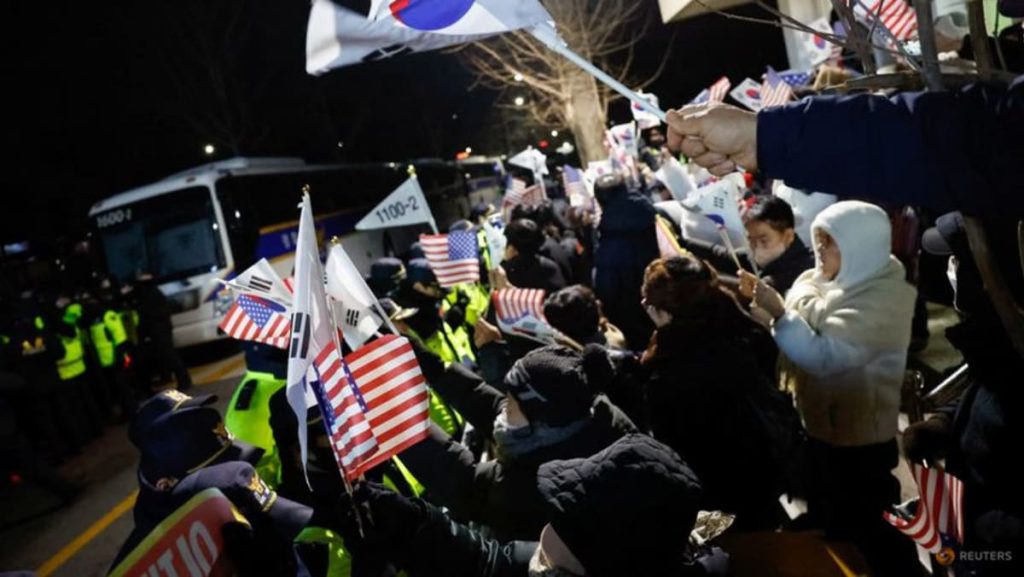The South Korean economy faces a significant downturn, with the central bank, the Bank of Korea, drastically revising its growth forecasts for 2025 downwards. This economic slump is primarily attributed to the political instability that has gripped the nation following President Yoon Suk Yeol’s short-lived declaration of martial law in December. This unprecedented move, coupled with the subsequent impeachment of the president and the tragic Jeju Air plane crash, has created a climate of uncertainty and fear, significantly impacting consumer confidence and overall economic activity. The attempted power grab and the ensuing political turmoil have undermined trust in the government and cast a long shadow over the nation’s economic prospects.
The declaration of martial law, though quickly overturned by the legislature, sent shockwaves through the South Korean economy. The move, perceived by many as an authoritarian overreach, triggered widespread protests and political upheaval. This instability has had a chilling effect on consumer spending and investment, two crucial drivers of economic growth. Businesses, wary of the volatile political landscape, have become hesitant to invest in new projects, while consumers, worried about the future, have curtailed their spending. This decline in domestic demand has further exacerbated the economic slowdown. The political turmoil has also likely disrupted supply chains and hampered business operations, contributing to the projected economic contraction.
Adding to the economic woes is the tragic Jeju Air plane crash, which claimed the lives of 179 people. This devastating event, the worst aviation disaster in South Korean history, has further dampened consumer sentiment and added to the prevailing sense of unease. The crash, coming on the heels of the political crisis, has compounded the negative psychological impact on the population, further depressing consumer spending and economic activity. The air disaster also likely had direct economic consequences, disrupting travel and tourism and impacting related industries.
The combined impact of the political crisis and the plane crash has forced the Bank of Korea to significantly revise its growth projections. The central bank now expects the economy to grow at a slower pace than previously anticipated, reflecting the diminished consumer and business confidence. The initial projection of 1.9% growth for 2025 has been revised downwards to a range of 1.6% to 1.7%, a significant reduction attributed directly to the political instability. This downward revision highlights the profound impact of political events on economic performance, underscoring the importance of stability and predictability for sustained economic growth.
The political uncertainty stemming from President Yoon’s actions has shaved approximately 0.2 percentage points off the projected growth rate for 2025. This reduction primarily reflects the decline in domestic consumption and other areas of domestic demand, as consumers and businesses react cautiously to the volatile political environment. The political crisis has created a climate of uncertainty that has discouraged spending and investment, dampening economic activity and hindering growth. The impact of this political instability is expected to linger, further weighing on the economy in the coming years.
The Bank of Korea’s revised growth forecast underscores the significant economic consequences of political instability and unexpected crises. The attempted seizure of power, the subsequent impeachment proceedings, and the tragic plane crash have created a perfect storm, battering the South Korean economy and casting a shadow over its future prospects. The central bank’s downward revision serves as a stark reminder of the interconnectedness of political stability and economic prosperity, highlighting the importance of strong institutions and sound governance for sustained economic growth. The South Korean economy now faces the challenge of navigating this turbulent period and restoring confidence in the face of significant political and social upheaval.

